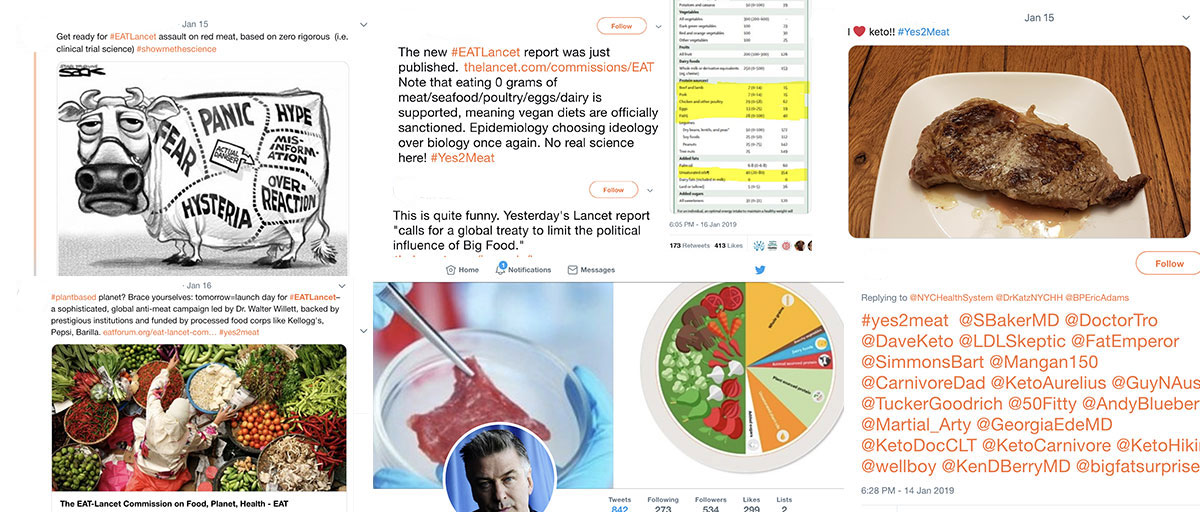EATLancet vs yes2meat: the digital backlash to the planetary health diet
Summary
Food production, climate change, and human health are intrinsically related. The EAT–Lancet Commission is one of the first attempts to summarise and communicate the best available science on what constitutes a healthy diet within environmental targets. The launch of the report was paralleled by several international launch events, including a social media campaign with its own hashtag: #EATLancet.
Although the report was positively received by established international media outlets such as The Guardian and The New York Times, it also led to highly polarised debates online including misinformation, conspiracy theories, and personal attacks along with the hashtag #yes2meat. The controversies online associated with the EAT–Lancet Commission, we believe, show how a rapidly changing media landscape and polarisation pose serious challenges to science communication on health and climate issues.
To understand the effect of this controversy, we have collected and analysed a dataset of Twitter activity linked to EAT–Lancet and yes2meat with 4278 Twitter users and 8·5 million tweets (appendix p 1). Our analysis confirms that a digital countermovement managed to organise rapidly, essentially dominating online discussions about the EAT–Lancet report in intriguing and worrying ways. Our conclusion is based on the following observations. First, it is evident that a counter-movement targeting the EAT–Lancet report began to organise around 1 week before its official launch date on Jan 17, 2019. The time series of tweets mentioning EAT–Lancet and yes2meat (figure) shows that the term yes2meat started to surface a few days before the launch (ie, on Jan 14).







